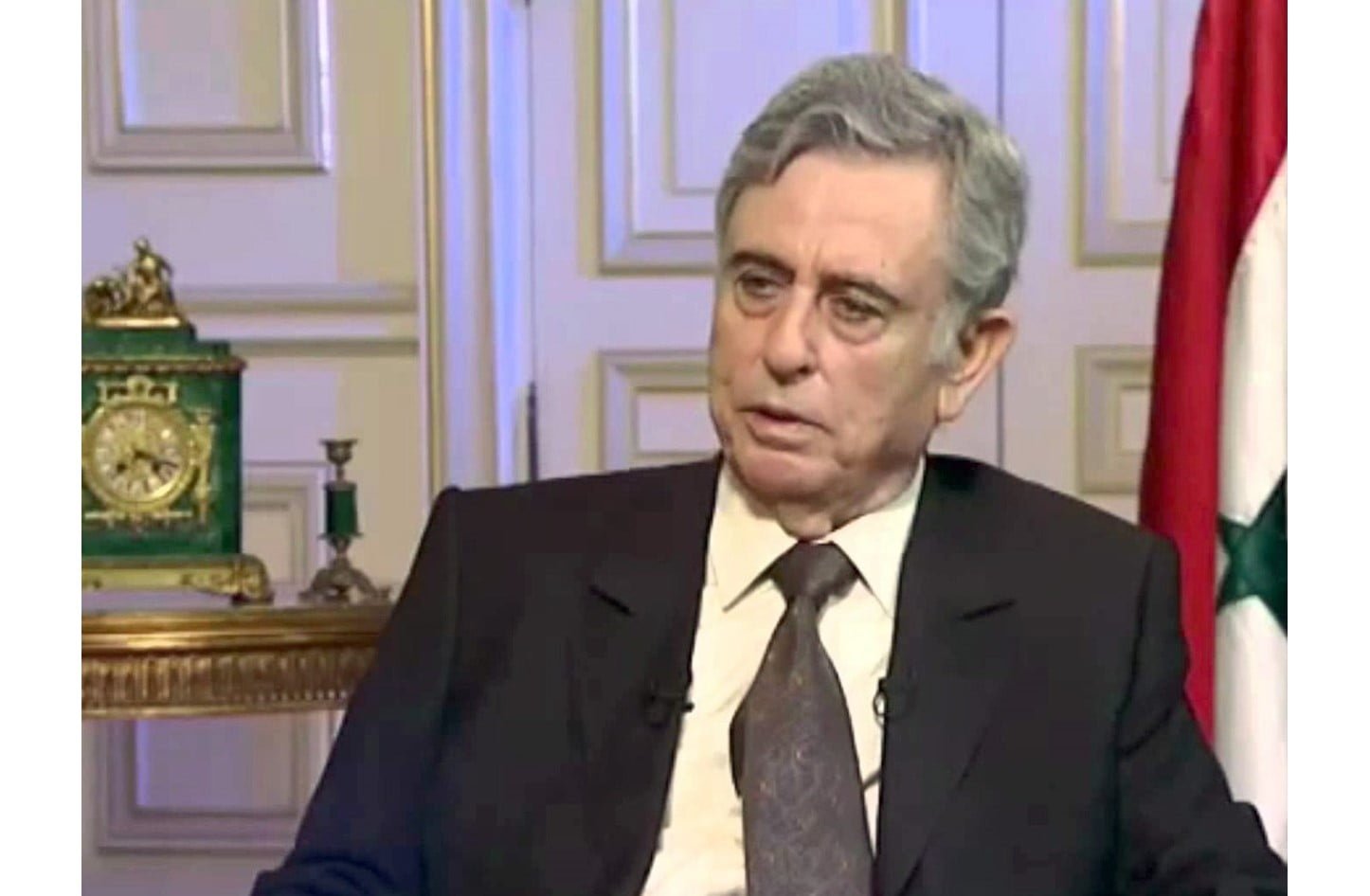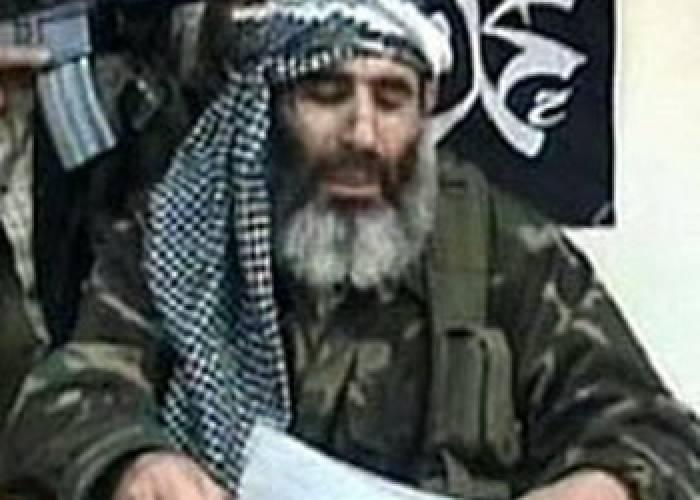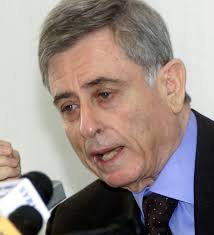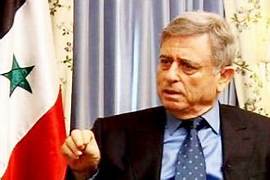khaddam: Assad believes that “Hezbollah” is the only means to disrupt the court, and Berri receives a Syrian threat and says to Jumblatt, “Take it and ease me.”
Former Syrian Vice President Abdul Halim Khaddam confirmed that Syrian President Bashar al-Assad is in a “major predicament” due to the international court’s involvement in the assassination of former Lebanese Prime Minister Rafik Hariri. He noted that Assad claims, “I have no connection, and Syria has no connection. The one who killed Prime Minister Hariri is now trying to escape his predicament through escalated rhetoric.”
He explained that Bashar al-Assad “cannot separate from Iran as his protection is tied to it. He is accused of killing Rafik Hariri, and the only way he believes can disrupt the formation of the court is through ‘Hezbollah,’ whose decisions are not with Assad but with Iran. Thus, his oxygen comes from Iran because Bashar doesn’t have the oxygen to provide him. It’s the Iranian bridge of passage, and meeting this passage provides him protection.”
He revealed that the Speaker of the Parliament, Nabih Berri, said to the head of the “Democratic Gathering” Deputy Walid Jumblatt, “Brother, take the court out of Lebanon and ease me.” He said, “Nabih wishes to be freed from the court because he considers himself a target. He received a threat from one of the Syrian security officials: Be careful, Abu Mustafa, there is an American conspiracy to assassinate you. What does that mean? It means if they kill us, you will be killed too, be careful.”
Khaddam saw in an interview with the program “Al-Istikhaq” on “Al-Mustaqbal” television two days ago that “there is no state in Syria today, but there is a ruling family that uses government and security apparatuses to impose its control over the country and loot its resources. The people expressed their opinion by boycotting the recent parliamentary elections.”
He pointed out that “real elections have not taken place in Syria, and the overwhelming majority boycotted these elections. This council is a stage for the role played by the president.” He noted that “the participation rate in the voting was between 3 and 5 percent, and the elections take place over two days to bring as many people as possible to the ballot boxes.”
He said, “The current system in Syria is not governed by logic or reason, and the educational level is very low now, while in the past, the Syrian university was like a beacon. The existing corruption has never been witnessed in Syria throughout its history spanning hundreds of years. Likewise, the economic institutions in Syria, including companies and institutions, are under the control of the ruling regime. The governance is based on monopolizing power, and he wants to control everything to protect his authority over the people, using repression at the expense of people’s freedoms, in addition to the policy of arrests and daily raids that are part of the nature of the regime.”
Commenting on Assad’s statement that the entire people are with him, he asked, “If the entire people are with you and will elect you with 99.99 percent tomorrow, why are you afraid of people’s freedom? Why are you afraid of an article written by Michel Kilo? Why are you afraid of an article written by Habib Issa? A ruler who fears words means that the people are not with him. No country in the world can withstand external pressures if it is in one valley and its people are in another valley. It cannot face pressure when its people have turned into prisoners. I want to face pressure and carry out ‘antariyyat’ (daring actions) through speeches and reflect them on the ground.” He said, “What did Assad do to the Syrians? He impoverished them. He sowed fear, sowed backwardness, and undermined national unity. In Syria, there is a problem with national unity, an unprecedented problem in Syria’s history. This means that the national fabric is currently shaky.”
He believed that “if the regime in Syria had fulfilled its commitments in the October Movement, a real openness policy and a democratic policy, and accepting the other would have been established. We agreed on this and based on this, the October Movement emerged, and Hafez al-Assad became the leader of the movement and the country. If these matters had happened, there wouldn’t have been a drop of blood in Syria. Extremism always creates catastrophe.”
He pointed out that “when the state becomes extreme in its practices towards its people and towards others, it makes extremism appear on the other side. Extremism doesn’t come from itself; the causes of extremism are either poverty or oppression.” He affirmed that “there is no democracy in Syria because if democracy existed, there wouldn’t have been one assassination, the Adnan Malik assassination, committed by the Syrian nationalists.”
He affirmed that “the new generations in Syria are the most enthusiastic about knowing the regime,” indicating that “we have not set a date for civil disobedience, and these matters come within a program. But the National Salvation Front relies on the security considerations prevailing in the country, and the regime will be surprised in a not-so-distant phase. This regime is on the verge of collapse.”
He added, “As for the option of change and the stance of the Syrian people, it is for the transition to building a democratic system and a democratic civil state. If this does not happen, there is a great danger to Syria, which is that this regime in Syria will cause what Saddam Hussein caused in Iraq. The safety of Syria and the safety of its future lies in achieving the change that leads to building a democratic state system.”
He considered that “any country cannot build its stability through repression and fear of the regime,” pointing out that “the National Salvation Front has a program. We say that the Baath Party will be like any other party, and now there is movement among the Baathists to form a temporary leadership, and its program will be announced soon, and mechanisms will be put in place to determine the future of the party and the country. This movement is based on separating the family from the party. They use the party’s leaders to cover their mistakes, and all these mistakes are committed under the party’s slogans, and the party has no knowledge of them, and addressing this issue involves addressing it under the banner of democracy.”
And he addressed “our brothers in the Alawite sect, especially the Baathists,” saying: “The nation is in danger, and national unity is at risk. I urge them to take on their responsibilities to restore harmony to the country because they know very well that there is a crack in the national fabric. I implore them to shoulder their national responsibilities so that the country doesn’t fall into undesirable circumstances for any Syrian.”
He affirmed that “the change that leads to building democracy is what protects the Syrian society. The rule is not solely the rule of the Alawite sect; they have borne more burden from the parties and the Assad family than many others in the rest of the provinces.” He said: “The Assads used elements from the sect, but the rule did not benefit the sect. The Assads consumed the Alawites, using them when convenient and discarding them when not needed, under the guise that the rule was the rule of the sect, while in reality, the rule is the rule of the family. The Alawites are victims of the regime. If an Alawite is with the opposition, they govern for ten years, and if they are not Alawite, they govern for five years. Syria’s political reality has never been based on sectarianism; there are some factors that created a sense of sectarianism, related to policies of discrimination, separation, and isolation within the segments of society. All sects feel injustice because power is concentrated in the hands of the family and the people who love them. The events in Iraq and Lebanon heightened the sense of sectarianism, and the “funeral” process that started with the Iranian ambassador also created an atmosphere.”
He affirmed that “Syria cannot move based on sectarianism at all, and if we wanted to move on a sectarian basis, the regime’s fate could have been decided in a matter of days.” He emphasized that he does not want to speak on behalf of the Sunni majority or the Christian minority, saying: “There’s no one among us like Ahmad Jilabi, and no one among us has pawned themselves to foreigners, and no one among us can imagine that Syrians would clash due to sectarian reasons. But we hold the regime responsible for its actions.”
He appealed to all Syrians to “preserve national unity,” particularly addressing the Alawite community, especially the Baathists, to take on their responsibilities in preserving this unity. He said this can only be achieved by them actively participating in the process of changing the regime.
He affirmed that Bashar al-Assad is now in a significant predicament due to the issue of the international tribunal and the assassination of Rafik Hariri. He said: “It’s true that he claims: I have no involvement, and Syria has no involvement. The one who killed Hariri is now trying to escape his predicament through escalating his rhetoric.”
He questioned: “How can Syria play a role in the region while its own people are imprisoned?” He stressed that for Syria to play such a role, it requires national unity and an understanding of the regional situation and power dynamics, along with the capacity to handle the stance the state takes.
He stressed that Assad “cannot separate from Iran because his protection lies in Iran. He’s accused of killing Rafik Hariri, and the only means he believes can disrupt the formation of the court is ‘Hezbollah,’ whose decisions are not in Assad’s hands but in Iran’s. Thus, his oxygen comes from Iran, as Bashar doesn’t have the oxygen to give. It’s the Iranian crossing bridge, and this crossing provides him protection.”
He mentioned that there is a joint Syrian-Iranian security operations room with the mission of protecting the regime, indicating that the matter is not that straightforward. He considered it difficult and impossible to compromise, as Iran’s involvement safeguards the regime. He explained: “My conviction is that the international investigation is getting closer to its conclusions, but it’s tied to the formation of the court, which is overseen by the Security Council. And (Speaker of Parliament) Nabih Berri told (Deputy of the Democratic Gathering bloc) Walid Jumblatt, ‘Brother, take the court out of Lebanon and spare me.’ Bashar can’t stand hearing the phrase ‘international court.’ If he has no involvement, why were discussions held in the Security Council and with the Legal Affairs Bureau of the Secretary-General of the United Nations over months, as referred to by Nicolas Michel (the UN’s Under-Secretary-General for Legal Affairs)? If Bashar has no involvement, and if he considers himself innocent, then he doesn’t need to put himself in an accusatory position.”
Regarding whether President Berri is “happy” with his current situation, he said: “I know how Nabih thinks. Nabih wishes to be free from the court’s issue because he considers himself a target. He received a threat, and Abu Mustafa (a nickname for Nabih Berri) will say it’s not true, but it’s true; he received a threat from one of the Syrian security officials: Be careful, Abu Mustafa, there is an American conspiracy to assassinate you. What does that mean? It means if they kill us, they will kill you too. Be cautious.”
And about the reason “Hezbollah” is vehemently defending all its accomplishments in Lebanon, its history, and heritage for the sake of the court, he responded: “If Bashar al-Assad has no involvement and is enthusiastic, or if Bashar is the murderer and ‘Hezbollah’ is defending him.”
Regarding Assad’s refusal to have any Syrian accused stand trial outside of Syria, Khaddam clarified that there’s no absolute sovereignty for states within the boundaries of the agreements they sign with others. The sovereignty of states is determined in light of these agreements. Syria signed the Charter of the United Nations, including Article VII, which granted the Security Council rights over the states. The sovereignty of the Security Council supersedes national sovereignty, otherwise, what do the Security Council resolutions mean? States don’t execute; Assad’s logic claims he’s defending Syrian sovereignty and the dignity of Syria to incite the people, “People, be aware, I’m defending the sovereignty and dignity of the country.”
He pointed out that “the majority of Syrians follow the court’s proceedings more closely than the Lebanese do, as they believe that this court will be one of the factors that will help them rid themselves of the burden of this regime.” He said, “I tell any Lebanese, I am ready on any television channel for a dialogue, and we’ll put the files on the table to talk about everything. I’ll talk about the incident that occurred between me and Hafez al-Assad in 1992, when President (the late Rafik) Hariri tasked me, him, and Hikmat Al-Shihabi with forming the government. Every name we discussed and agreed upon, I would go and inform President Hafez al-Assad about every name. He wanted Selim Franjieh as the Minister of Telecommunications, yes, Selim the Younger. My perspective is that Bassel al-Assad wanted Selim Franjieh to come to the Ministry of Telecommunications because there were contracts to be established in landlines and mobile phones, and the issue was delayed because the three of us agreed that this matter would be harmful to Syria. I took the phone and told President Hafez that regarding Selim, this young man is enthusiastic about politics, and the issue of telecommunications is a technical matter. He said, ‘Okay.’ The next day, at 9 in the morning, President Hafez al-Assad called me and said, ‘What is this ministry?’ I told him, ‘It includes every name we discussed with you.’ He said, ‘You’re not working for the country’s interest; you’re working for your own interests. All this because Selim Franjieh didn’t take the Ministry of Telecommunications.’ I told him, ‘I’m not working for my interests; I’m working to protect your reputation and the country’s reputation, as this ministry involves contracts, and contracts involve brokerage, and there will be talk, and Hafez al-Assad’s son Bassel, and Selim Franjieh, did this and that…’ And I told him, ‘I don’t have anyone to impose on the ministry, and you want Selim Franjieh for the sake of your son.’ He shouted, and I shouted, and we hung up the phone, and we didn’t talk to each other for fifteen days.”
As for whether it’s possible for such a confrontation with President Hafez al-Assad to happen without resulting in a massacre, he answered: “For me, no, because he didn’t bring me; I contributed to his coming. I played a major role in bringing Hafez al-Assad to power, and he knows this and deals with me on this basis, as a partner, not like the rest of the people who came as employees. I have memoirs in ten volumes, about ten thousand pages, and I don’t publish them because I’m afraid that their publication might lead to complications in the Lebanese situation.”




